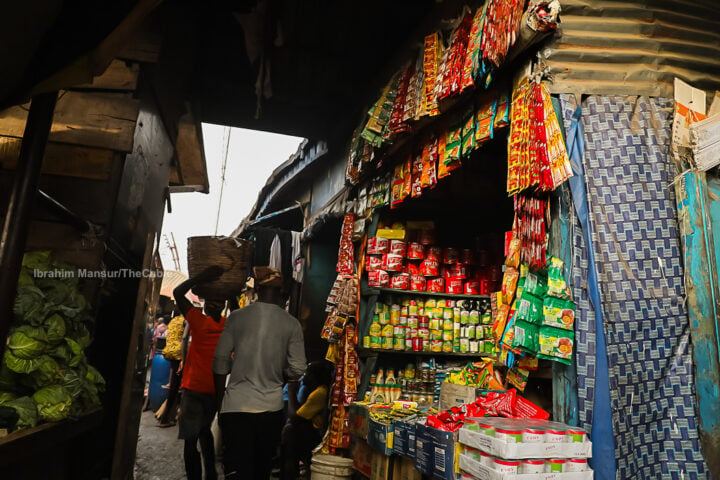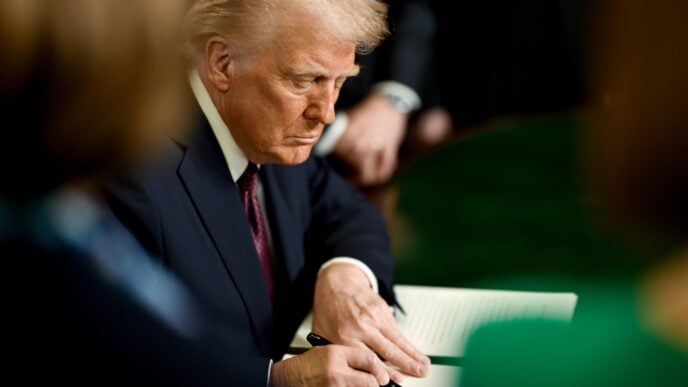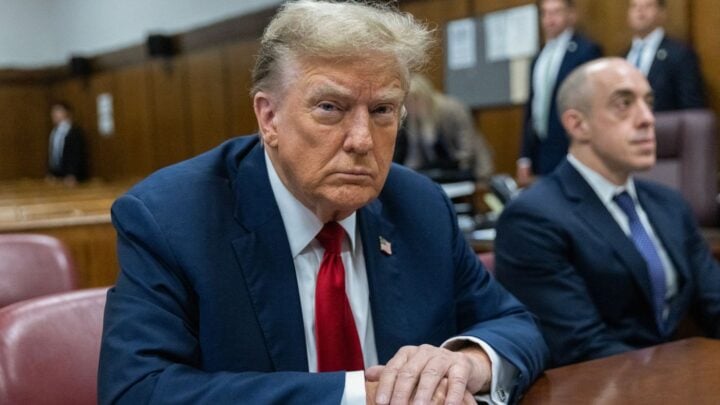Photo: UNICEF
As it was in the previous years, there were fresh hopes in 2024 for the Nigerian child to not only stay alive but to also stay healthy, thanks to the hard work of UNICEF which initiated actions or complemented efforts by the government in the country. Sustaining the fresh hopes would however require greater efforts and nothing else would make the efforts manifest other than getting on the field to feel the pulse. Amid the fresh hopes, there were also a few loose ends to be tightened to get the desired results that would benefit the Nigerian child in the short and long terms. Therein laid the need for media partnership to help bring the efforts to fruition through sustained advocacy and publicity.
At a two-day media dialogue organised by the UNICEF in conjunction with the Child Rights Information Bureau (CRIB) of the Federal Ministry of Information and National Orientation held in Kano on May 29 and 30 2024, participants reviewed efforts that were made in the previous years, drawing fresh efforts at moving forward. They travelled about 20 kilometers from Nasarawa GRA, Kano to Tsamiya Babba in Gezawa Local Government of the state to witness the outpouring of women at the Basic Health Centre to get children under 0 to 5 years vaccinated. At the facility, Hajiya Halimat Aliyu Yunusa, a community health extension worker, said a hundred vaccination were targeted weekly and could stretch to more in some weeks, depending on how many the needy got, although in no week did the number of vaccinated children fall below 30, grossing up to 300 in a month and as many as 3,100 in a year.
At a similar facility in the Gwagwarwa area of the Kano metropolis, several people were also vaccinated, although unlike at Tsamiya Babba where only children between 0 and 5 years old were vaccinated, this particular centre welcomed children of older age, especially school children between 9 and 14 years who had come for the Human Papillomavirus (HPV) infection vaccine.
But at the Tsamiya Babba centre, there was a shortage of staff to adequately cope with the multitude of needy so that no one was kept waiting unnecessarily too long to be attended to. Officials however said efforts were being made to make up for the shortfall by augmenting the 10 staff on the ground with 24 volunteers.
Advertisement
During the dialogue, Dr. Eduardo Celades, Chief of Health, UNICEF Nigeria, admitted that the 70 per cent success achieved by child vaccination in northern Nigeria up till that period deserved commendation, even though he also warned that the success should rather be treated as a process than an event as more challenges still laid ahead with the record of non-compliance to vaccination standing at 111,000, in addition to 31, 000 kids that had remained unvaccinated, which translated to a disturbing reality that by 2029, a greater number of children would not have got vaccinated.
Celadas’ disclosure at the dialogue that UNICEF was working closely with the Federal Ministry of Health to establish two primary health care centres in each ward of the 774 local government areas of Nigeria appeared to be a long-term plan. But the participants were unanimous that the lofty goal must be attained to ensure sound health for the country’s future.
Celebrity artiste of the Kannywood fame, Ali Nuhu, who also attended the dialogue as a UNICEF champion, counselled the media to “focus more on those who are hesitant to the life-saving vaccines than others that have accepted them” in order for the desired success to be achieved.
Advertisement
At a Lekki, Lagos event of October 24 2024 when UNICEF marked World Polio Day, the media partnership for child survival also came to the fore in a remarkable way. The target was mainly to stamp out polio from the Nigerian firmament through a collective effort. But the day turned out to be one on which a total war was also declared on measles and other preventable diseases afflicting the Nigerian child.
It was a gathering of music stars and celebrity actors from across West and Central Africa who had collaborated to release a new song titled “No more zero dose” to help drive childhood immunisation into people’s consciousness. Nuhu of the Kannywood was also there, with Cobhams Asuquo, Kate Henshaw, Master Soumy, Mawndoe, Omawumi, Spyro, Stanley Enow, Timi Dakolo, WAJE, Qing Madi and Sekouba Bambino in attendance.
Research showed that West and Central Africa recorded the lowest immunisation coverage in the world as the Diphtheria-tetanus-pertussis (DTP3) coverage for both regions was 69 per cent in 2023, down from 72 per cent in 2019. This is in addition to the regions recording multiple vaccine-preventable disease outbreaks, including polio, measles, diphtheria and yellow fever, in recent years. About 48 hours before the 2014 World Polio Day was marked, reports also emerged that there were 138 polio cases in Africa, with nearly half of the infected children from Nigeria.
At the two-hour event in Lekki, UNICEF Nigeria’s Country Representative. Cristian Munduate said the release of the ‘No More Zero Dose’ song featuring talented artists from across West and Central Africa reflected the deep commitment to ensuring that every child received life-saving vaccines, even as all the participants who included journalists drawn from various media houses were unanimous that although huge progress had been made in child vaccination in Nigeria over the years, the fight to end zero-dose cases must be continuous.
Advertisement
Yet another two-day media dialogue was held on December 4 and 5 2024 in Calabar, Cross River State to cap UNICEF’s child survival efforts for the year. It was an opportunity to once again review activities for the outgoing year and participants visited the School Health Services Clinic in Ekpo Abasi, Calabar South, Primary Healthcare Center at Ikot Offiong Ambai in Akpabuyo Local Government Area, the UNICEF-donated Oxygen Gas Plant inside the Mary Slessor General Hospital in Calabar and the Sick Baby Unit at the 45-year-old sprawling University of Calabar Teaching Hospital complex for on-the-spot assessment of past efforts.
At the sick baby unit of the teaching hospital, the Deputy Director in charge, Mrs. Esther Esenwenren Onoh, said with the aid of the oxygen cylinders at the facility, child mortality had reduced considerably, although the downside was that some indigent parents struggled to meet up with the cost, necessitating government intervention with a view to saving more lives. The Ekpo Abasi and Ikot Offiong facilities both needed face-lift and expansion respectively as officials there implored the journalists to help advocate for their needs.
Although traditional birth attendants are not yet a phenomenon in Cross River State, Dr. Vivian Otu, Director General of Cross River State Primary Health Development Agency, who addressed participants at the dialogue, admitted that it is a common feature in the state. She said her agency was aware that the traditional birth attendants were patronised by a lot of women in the state, apparently due to the people’s culture and tradition, but said a strategy had since been developed to engage the women in a series of meetings aimed at educating them on the need for safety of the newborn babies. To make the women patronise government health facilities to reduce the risks that could accompany the traditional methods, Otu said the agency gave incentives to expectant mothers to win over their trust.
But Dr. Martin Dohlsten, Health Manager, UNICEF, Abuja advocated a step further from childbearing, after analysing UNICEF data that showed 7,100,000 babies were born in Nigeria in 2015, approximately 19,500 every day, indicating that Nigeria’s neonatal mortality rate (NMR) is 34 deaths per 1,000 live births. Dohlsten therefore called for an urgent mentality shift from the survival of mother and child at birth to opportunities for both to thrive afterward, even while still stressing the need for adequate ante-natal care as key to saving the child from infections, asphyxia, and immaturity.
Advertisement
The foregoing suggests that the child-saving efforts would continue in the new year for as long as there is unanimity that the survival of the Nigerian child has a direct link to a healthy future for the country in all sectors of national life.
Advertisement
Views expressed by contributors are strictly personal and not of TheCable.
Add a comment










